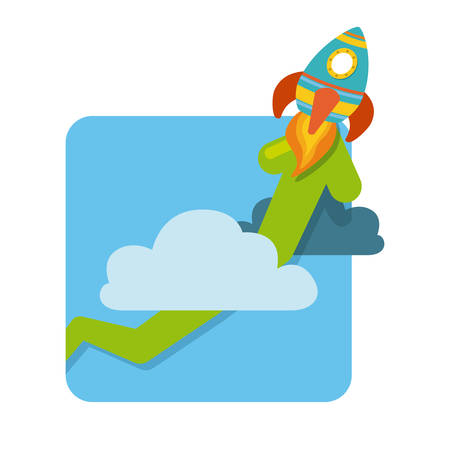Redefining Hustle: Understanding the Value of Rest in Entrepreneurship
For decades, the American dream has been tied to the image of the tireless entrepreneur—someone who burns the midnight oil, grinds day and night, and never stops hustling. But things are changing. Across the U.S., there’s a growing realization that constant work isn’t the golden ticket to success. Instead, more founders, business owners, and startup teams are recognizing that rest isn’t just a luxury—it’s a strategic asset.
The Shift from Nonstop Grind to Balanced Living
Entrepreneurial culture in America is evolving. Today, leaders are talking openly about burnout, mental health, and the importance of taking time off. It’s becoming clear that rest isn’t a sign of weakness or laziness—in fact, it’s key to staying creative, making smart decisions, and building businesses that last. When you’re rested, you’re sharper, more innovative, and better equipped to handle challenges.
Why Balance Matters for Long-Term Success
Building a company takes serious dedication, but pushing yourself nonstop comes at a cost. Chronic fatigue can lead to mistakes, poor judgment, and even health problems. By building regular sleep, breaks, and vacations into your routine, you protect not only your well-being but also your business’s future.
Comparing Old vs. New Entrepreneurial Mindsets
| Old Mindset | New Mindset |
|---|---|
| Sleep is for the weak | Quality rest fuels high performance |
| Work nonstop for success | Pace yourself for sustainability |
| No days off means dedication | Breaks and vacations are necessary for growth |
| Bottling up stress is normal | Mental health is part of being an effective leader |
This cultural shift doesn’t mean ambition is fading—it means entrepreneurs are getting smarter about how they use their energy. By redefining hustle to include rest as a priority, today’s founders are setting themselves up for real, lasting success.
2. Sleep: The Ultimate Performance Enhancer
Why Entrepreneurs Need Quality Sleep
When you’re building a business, burning the midnight oil might seem like a badge of honor. But science shows that sleep isn’t a luxury—it’s your secret weapon. Getting enough high-quality rest directly impacts your ability to make smart decisions, come up with creative solutions, and handle the stress that comes with entrepreneurship.
The Science Behind Sleep and Success
Sleep does more than just recharge your batteries. It helps your brain process information, form memories, and clear out toxins that build up during the day. Here’s how sleep fuels key entrepreneurial skills:
| Entrepreneurial Skill | How Sleep Helps |
|---|---|
| Decision-Making | Well-rested brains weigh risks and rewards more accurately, leading to smarter choices under pressure. |
| Creativity | REM sleep boosts idea generation by connecting unrelated concepts—essential for innovation. |
| Problem-Solving | A good night’s sleep helps you see problems from new angles and avoid tunnel vision. |
| Resilience | Sufficient sleep improves emotional regulation, making it easier to bounce back from setbacks. |
The Entrepreneur’s Sleep Struggles
It’s no secret that founders often sacrifice sleep for hustle. Late-night emails, early-morning meetings, and endless to-do lists can turn sleep into an afterthought. However, this mindset can backfire fast—fatigue makes it harder to focus, increases mistakes, and even impacts your mood with your team and customers.
Quick Tips for Better Sleep
- Set a consistent bedtime—even on weekends.
- Avoid screens at least 30 minutes before hitting the pillow.
- Create a wind-down routine (like reading or meditation).
- Keep your bedroom cool and dark.
- If worries keep you up, jot them down in a notebook for tomorrow.
The Bottom Line on Sleep and Entrepreneurship
Your next big idea might just depend on getting those seven to eight hours. Prioritizing sleep isn’t lazy—it’s one of the smartest moves an entrepreneur can make for long-term performance and well-being.

3. The Power of Taking Breaks: Preventing Burnout and Boosting Focus
For entrepreneurs, it’s easy to fall into the trap of working non-stop—chasing deadlines, juggling meetings, and trying to stay ahead of the competition. But hustling 24/7 can quickly lead to burnout, mental fog, and lost productivity. That’s where the simple act of taking regular breaks comes in.
Why Breaks Matter for Entrepreneurs
Stepping away from your desk for just a few minutes might sound counterproductive when you have a mountain of work, but research shows that strategic pauses actually help maintain energy and focus throughout the day. Whether it’s a quick walk around the block, a coffee break, or even a five-minute stretch, these moments can refresh your mind and give you a much-needed reset.
Types of Breaks That Work Best
| Type of Break | Duration | Key Benefits |
|---|---|---|
| Micro-breaks (1-5 min) | Every hour or after completing a task | Reduces eye strain, relieves stress, boosts creativity |
| Lunch hour (30-60 min) | Midday | Restores energy, improves mood, encourages healthy eating habits |
| Brief pauses (10-15 min) | A few times per day | Sharpens focus, prevents burnout, allows time for reflection |
How to Make Breaks Part of Your Routine
- Set reminders: Use your phone or computer to alert you when it’s time for a break.
- Change your environment: Step outside or move to a different room for a mental refresh.
- Avoid screens: Give your eyes and brain a rest by looking away from digital devices.
- Stay active: Light stretching or walking can help increase blood flow and energy levels.
- Connect with others: Use break time to chat with colleagues or friends for a quick mood boost.
The American Approach to Breaks at Work
In the U.S., there’s growing recognition that breaks aren’t just “nice to have”—they’re essential for peak performance. Many startups and tech companies encourage micro-breaks and flexible schedules because they know that well-rested founders and team members are more creative and productive. So don’t feel guilty about stepping away; think of it as fueling your entrepreneurial journey for the long haul.
4. Vacations and Unplugging: Why Entrepreneurs Must Truly Get Away
In the fast-paced world of entrepreneurship, it can feel like there’s never a good time to step away. But in the United States, taking vacations is more than just a personal luxury—it’s a cultural touchstone that supports long-term success. Americans value hard work, but there’s also growing recognition that real productivity and creativity require genuine breaks from business.
The Role of Vacations in American Culture
Unlike some countries where work always comes first, many American companies encourage employees—including founders and leaders—to use their vacation days. This isn’t just about relaxation; it’s about returning with fresh energy and new ideas. When entrepreneurs take time off, they set a powerful example for their teams about the importance of balance and well-being.
Why Unplugging Matters for Entrepreneurs
Unplugging means truly disconnecting from emails, calls, and the constant buzz of notifications. For entrepreneurs, this can be tough, but its essential for several reasons:
| Benefit | Description |
|---|---|
| Renewed Perspective | Stepping away helps you see your business challenges with fresh eyes, often leading to better decisions when you return. |
| Boosted Innovation | New environments and experiences spark creative thinking—some of the best ideas come while you’re not at your desk. |
| Stronger Leadership | Taking a break allows your team to step up, builds trust, and shows you value self-care—traits that inspire loyalty and performance. |
How to Make the Most of Your Vacation
- Plan Ahead: Set clear boundaries and let your team know when you’ll be unavailable.
- Truly Disconnect: Leave work devices behind or set strict limits on usage.
- Embrace New Experiences: Try new activities or visit places that inspire you outside of work.
- Reflect: Use some downtime to think about big-picture goals—not just daily tasks.
Remember, vacations aren’t a sign of weakness—they’re an investment in yourself and your business. In American culture and entrepreneurship alike, getting away is one of the smartest moves you can make for lasting success.
5. Building a Rest-Friendly Mindset and Business Culture
Why Prioritizing Rest Matters for Entrepreneurs
In the fast-paced world of entrepreneurship, hustle is often celebrated—but rest is just as essential for sustained success. Entrepreneurs who value sleep, take breaks, and encourage vacations not only boost their own performance but also foster a thriving team culture. Let’s explore practical ways to build a rest-friendly mindset and workplace.
Actionable Tips to Prioritize Rest
Set Boundaries Between Work and Life
- Establish clear work hours: Communicate your schedule to your team and stick to it as much as possible.
- Designate tech-free zones: Avoid checking emails or taking calls during meals or family time.
- Create physical boundaries: If working from home, set up a dedicated workspace to separate business from personal life.
Encourage Regular Breaks
- Use the Pomodoro Technique: Work for 25 minutes, then take a 5-minute break; after four cycles, enjoy a longer break.
- Promote walking meetings: Step outside with your team or alone to refresh your mind while discussing business ideas.
- Remind everyone to hydrate and stretch: Simple physical movements can prevent burnout and increase focus.
Create a Team Culture That Values Well-being
| Practice | How to Implement | Benefits |
|---|---|---|
| Flexible Schedules | Allow employees to choose hours that fit their lifestyles when possible. | Reduces stress, increases job satisfaction. |
| No-Meeting Days | Pick one day each week where no meetings are scheduled. | Boosts productivity and gives room for deep work or rest. |
| Encourage Vacations | Lead by example—take time off yourself and support your teams vacation plans. | Improves creativity, reduces burnout, strengthens loyalty. |
| Mental Health Resources | Provide access to counseling or mindfulness apps as part of benefits. | Supports emotional well-being and resilience. |
Lead by Example
Your habits set the tone for your company. When you openly prioritize rest—by taking breaks, getting enough sleep, or enjoying vacations—you give your team permission to do the same. Celebrate stories about how rest led to creative breakthroughs or improved results. Over time, this mindset shift can help make well-being a core part of your business’s success strategy.


